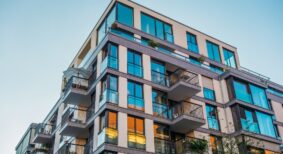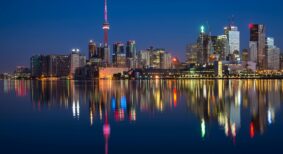Property managers in Canada are no strangers to putting out fires. They often tackle some form of crisis on a weekly basis and are good at what they do. Fortunately, their dedication continues. Along with boards, they remain highly engaged in COVID-19 response efforts, resulting in safer condominiums.
One specific crisis industry should prepare for is the demand for evidence in the coming months due to losses and/or claims. This is an excellent time for both property managers and boards to begin virtual table-top discussions on the corporation’s “risk posture” with respect to documentation, which lawyers and insurance companies will require in the months to come.
Here are some items to consider with your property leadership team.
Employee communications
Ensure the corporation and your leadership teams are able to identify the when and what you informed your staff about regarding both preventative measures in the workplace and employee safety. Keep track of dates, times and content. This should include documentation and acknowledgements of changes to policies and procedures.
Slips, trips and falls
In Ontario, this is one of the leading claims in the facility and property management industry. The risk for claims will continue and may even rise in the coming months. Your organization should be documenting daily checks of walkways, lobby entrances, lobby interiors and parking lots. Not only should these daily checks be documented once completed, but also the weather and ground conditions should be noted in the documentation as well. Simply conducting and documenting exterior lighting inspections at night will also allow you to provide ongoing evidence of due diligence to protect your corporation. If all this sounds like additional work and costs – it’s not. I would expect my security team to already be doing this as a standard practice.
Building cleaning
For a corporation to say it has enhanced cleaning in a building in response to COVID-19 is simply not enough. Documentation of when and what will likely be requested in the event of an insurance or loss claim. The evidence of enhanced cleaning provides your corporation with improved resident safety and a defendable platform in the event of loss. It’s a win-win.
Document the basics (You know, the ones we always seem to forget about.)
The risk of a specific crisis in your building is higher today than it was a month ago, simply due to the population being at capacity 24 hours a day. More cooking means increased risk of fires, for instance. Here’s a brief list of items that your corporation should document and/or have evidence of completion in order to mitigate against some specific issues that can be overlooked.
Monthly tests of elevator emergency communications
Every elevator has either an emergency telephone system or bell button that residents can use to communicate problems in the elevator, such as a medical emergency or an entrapment. Make sure that your staff are not only testing these systems for function, but also confirming that the audibility is clear, so it works in the event the system is needed. Document this test every 30 days.
Weekly tests of sprinkler and standpipe pumps
A fire pump needs to work in the event of a high-rise fire. Your building’s fire pump is required to be run every seven days by building staff. Ensure that this is being both completed and documented.
First aid kits and monthly inspections of AEDs.
Regulation 1101 in Ontario requires that first aid kits in condo workplaces be fully stocked and inspected every 30 days. While most AEDs are now equipped with self-check features, this life-saving vital equipment is required to be inspected every 30 days. Make sure it’s still where it is needed.
Carbon monoxide detection systems
Your condo’s underground parking garage is protected by a CO detection system that requires an annual calibration and a monthly inspection to acknowledge that there are no existing troubles or alarms. This monthly check should be documented with a date, time and name of the person who completed the check. It is this evidence that will create a defendable platform and provide enhanced safety for residents.
Security camera operations and recordings
Your condominium is likely protected by CCTV systems, and their functionality is vital to the safety and security of your building. Daily checks should be documented to indicate that the building’s camera systems are all functioning and recording. I cannot stress enough how many times an incident has occurred at a building only to find out that the system was not recording at the time of incident, or that the camera image was unusable due to a malfunctioning camera. This not only shows a non-defendable platform, but also creates new liabilities. This should be documented daily.
Communication of emergency procedures
Residential building fires have increased in Ontario over the past two months. Reminding residents of the building emergency procedures is vital at this time. As basic due diligence, every condo in Ontario should provide a copy of the Resident Section of the building’s approved fire safety plan to each resident in the building.
Every fire safety plan is required to be reviewed and updated every 12 months in Ontario. It is this fire safety plan that contains both building staff and resident approved emergency procedures. Print the email that you send to the residents containing their procedures and maintain this documentation as part of your due diligence.
What work did you stop doing and why?
By now, all condominium amenities have been closed. If not, your organization owns that liability. Stating why you closed the amenities is going to protect your organization in the months to come. It should be documented that you closed these amenities after careful consideration of both local and international public health guidelines and that resident safety could simply not be achieved with the limited cleaning resources available. The parameters you used to close the facilities may be requested 18 months from now.
Record the date and times of when and why these amenities were closed to provide information that may be used to show a pattern of informed decisions by your board, allowing for the basis of a defendable platform against claims.
Jason Reid is the senior adviser for Fire & Emergency Management with National Life Safety Group in Toronto. He has worked with international embassies, government, public and private sector critical infrastructure facilities; commercial/residential high-rise buildings; world class shopping centres and mass assembly facilities. He is also recognized throughout Canada for innovative best practices in the fire service and property/facility management industry – protecting people, assets, reputation and the bottom line. He can be reached at: jason.reid@nationallifesafetygroup.ca Main: 647-794-5505 Toll Free: 1-877-751-0508 www.nationallifesafetygroup.ca





